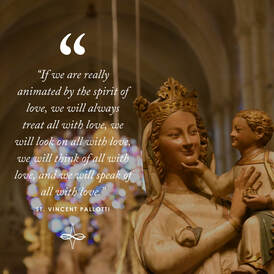 What motivates us to do what we do? If it is love, then we are called to “will the good of another” (St. Thomas Aquinas quoted in the Catechism of the Catholic Church, 1766). The object of our love is not ourselves or our self-interest. It is God and neighbor. St. Vincent Pallotti universalizes love in this way: “If we are really animated by the spirit of love, we will always treat all with love, we will look on all with love, we will think of all with love, and we will speak of all with love” (OOCC III, 338). This type of love requires sacrifice and generosity. Of course, the greatest act of love was the sacrifice of Christ on the Cross. We see generosity and sacrifice in the Blessed Virgin Mary saying “yes” to the Angel Gabriel and St. Joseph setting aside what he wanted to do and always doing the will of God. Sacrificing ourselves for the other, thinking not of self, but the other, is not a typical way of behaving. We seem to be able to do it on a small scale with those closest to us, which is the place to start. Bit by bit, through self-sacrifice, a generosity of spirit grows, love grows. Does this happen on its own? No, the Holy Spirit is moving in and through each of us. The grace of God gives us the ability to sacrifice and be generous, moving us toward universal love. May the charity of Christ urge us on!
0 Comments
During my fifth year with D.C. United, the team brought in a nutrition specialist. The specialist gave his presentation and then looked toward a table in the middle of the locker room that held about 40 pill bottles of vitamins, supplements, mild pain relievers, gels, powders, and who knows what else. The nutritionist then walked over to the table, looked back to us, and said, “you know, if you just eat well you can throw all of these out. In fact, you’d be better off doing that.” He left the locker room five minutes later and never came back. For my first five years at DCU, I had been taking those vitamins and supplements at the recommendation of our strength and conditioning coaches and athletic trainers. Now a certified nutritionist deemed the whole thing a waste of time and had even said they could hinder our performance—I wondered what exactly to do. Who should I listen to? This memory has stayed with me because it matters a lot for an athlete what you do with your body. It matters how you train, eat, sleep, relax, and recover. You need to know what is helpful for your athletic development and what is unhelpful. I wanted to know if the pills and supplements helped me or hindered me. This all applies to athletic prudence in the natural realm. Prudence is the ability to judge rightly and act according to that knowledge. It is being able to think through things correctly and then make the right choice. Thus, athletic prudence is the ability to choose and act rightly in the realm of an athletic pursuit. We make decisions and then act based upon what we have concluded is actually helpful or unhelpful in relation to our goal. I would like to apply this same line of thinking to the virtue of prudence in the supernatural realm. We should be asking what is helpful or unhelpful in terms of our spiritual lives. Just like the nutritionist condemning our pill vault and making me wonder what was actually helpful for my soccer career, we should ask what in our lives helps or hinders us from going to God. In order for us to do this, of course, we must acknowledge that God is both our goal and a worthy (the most worthy!) goal at that. When I got to the height of my playing career I was devastatingly depressed for a very concentrated span of time (only several days). For months I pondered why I hit such a low point amidst more success than I had ever expected. Eventually, through the help of the Holy Spirit, I realized that God allowed me to feel the weight of my success without Him. It was an incredible grace—but also one that was difficult to really learn. Over time the truth that my soul was more important than my sport sunk in. I realized that much of what I had made my life about was, in the end, unhelpful for reaching the ultimate Goal who is God. I started applying my athletic thinking to my spiritual life. I started asking the right questions—is this helpful or unhelpful for my spiritual life? Should I be hanging out with this group of friends so much? Are my weekend habits really bringing joy to my life? Am I living as the person I want to be? Do I know who I want to be? These questions led—and continue to lead—me to Jesus, and I find myself needing to ask them again and again. Do the decisions I make help me become who I want to be? Or are my decisions hindering me from being that person? Athletic prudence helps athletes maximize their potential and use their God-given gifts to the best of their ability. This same principle can—and should—be applied to our spiritual lives. Are the decisions, actions, and principles that guide my life helpful? Are they leading me in a good direction? Prudence, says St. Thomas Aquinas, is the mother of the virtues. You cannot possess any virtue without the virtue of prudence because prudence is what enables us to recognize what is truly good (helpful) and then act according to that good. No athlete can become great apart from athletic prudence because athletic prudence enables the athlete to recognize and act upon what helps him or her become a good athlete. Far more important, however, is the realization that no person can become who they were created to be apart from supernatural prudence. It is not possible to follow Christ without first asking yourself what exactly it is you’re already following—what is it that shapes your decisions? It may be a desire for comfort, power, status, honor, wealth, success, popularity, or any number of things. But they all fall short. To be prudent you must know the end goal. You cannot attain the virtue of prudence in the whole of life without knowing that “it is Jesus in fact that you seek when you dream of happiness.”  Taylor Kemp is an instructor for the Denver Catholic Biblical School as part of the St. John Vianney Seminary Lay Division in the Archdiocese of Denver. He is a former professional soccer player, amassing over 100 appearances over six-years in Major League Soccer (MLS) for D.C. United, and playing for both the youth and full United States Men’s National Team. Taylor holds an MA in Theology from the Augustine Institute and BS in Business Management from the University of Maryland, College Park. After nearly three months of what reminded me of the first Holy Saturday—that is, the experience of the apostles not knowing what was in store for them after the apparent loss of their teacher—I was able to participate in the celebration of the Mass offered at my parish. As a result of the COVID-19 pandemic, many of the faithful have had to rely on the remote broadcasting of the Mass in order to remain connected to their local churches. This, of course, is no substitute for the Real Presence, but in the absence of being able to be spiritually nourished as usual, we have been blessed that the pastors of the Church could reach out and minister to us as safely as possible. I witnessed the Church creatively address the problem of being unable to gather together to worship by utilizing the tools of digital social media to share scriptural reflections, homilies, group prayers, and simply to check in and care for various needs of neighbors. The doors of the churches may have been closed, but the people of God charitably opened their hearts.
After being apart for so long, I welcome the news of a return to the public celebration of the sacraments. Nothing could be better than receiving the Body, Blood, Soul, and Divinity of the Lord in the Most Holy Sacrament of the Eucharist. Can a bride be apart from her groom? Are we not in ecstasy to return to Holy Communion when we are cleansed of sin in the Sacrament of Reconciliation? So much more fervently have I longed for He Who dwells most intimately in our hearts and reigns over us. As Padre Pio shared, “My thirst and hunger do not diminish after I have received Him in the Blessed Sacrament, but rather, increase steadily.” There is no better joy on this earth than to participate in the Holy Sacrifice of the Mass. The experience is beyond mere mortal words, but St. Thomas Aquinas aptly selected a few for the Church to sing at the Feast of Corpus Christi: At this great feast of love let joyful praise resound, let heartfelt homage now ascend to heaven’s height: ring out the reign of sin; ring in the reign of grace; a world renewed acclaims its King, through veiled in sight.[1] I look forward to rejoicing with the Psalmist, “I was glad when they said to me, ‘Let us go to the house of the Lord!’”[2] The widespread return to the sacraments will be a most welcome act of devotion, if not a critical one, for our spiritual lives. Until then, we can participate in other devotions, such as spending time before the Blessed Sacrament (perhaps from the parking lot or via livestream) and simply gazing at our Lord. We can continue our prayer life and even adopt new prayer methods, such as Lectio Divina or the Chaplet of Divine Mercy, into our routines. We can say a daily act of Spiritual Communion or set apart five minutes a day for reflection and contemplation. Christ always accompanies us. His grace continues to abound for us; peace and comfort are always offered; and He never abandons us in our sufferings, however they may have been manifested in recent days. This time of staying at home has given me an insatiable thirst to receive the Lord physically in the Eucharist upon my tongue and into the core of my being! Thomas Aquinas, also called the Angelic Doctor, continues: When we eat the bread of gladness, there is here no cause for sadness: Christ can suffer pain no more. One or many, each is given whole, entire, the bread of heaven: mortal minds can but adore. … Jesus, whom for the present veiled I see, what I so thirst for, oh, vouchsafe to me: that I may see thy countenance unfolding, and may be blest thy glory in beholding. Amen.[3] If we allow our Lord to reign in us, even the least of us can be instruments of His Love and accomplish great deeds “for the praise and glory of his name, for our good and the good of all his holy Church.” As we have observed from our time apart, we are still able to recognize the Lord in the dignity and service of others, as well as in our day to day routines and lives of prayer. The graces never cease being poured out for His Church and our mission of evangelization never ends. He always accompanies us and that is enough! With a spirit of divine love and faithful accompaniment, we can “open wide the doors for Christ” for others in our homes, workplaces, and centers of care as much as in our intimate chapels, simple parishes, and breathtaking basilicas. [1] Sacris solemniis, St. Thomas Aquinas [2] cf. Psalm 42:1 [3] Adoro Te Devote, ibid. Throughout my studies at The Catholic University of America, I had the opportunity to witness and participate in the sacred traditions and rites of various religious orders I would never have encountered back at home. A great blessing of my place of study was the constant flux of various clergy, seminarians, and religious throughout campus who were undertaking a degree program or simply passing through campus in their respective ministries. God bless the Franciscans, Little Sisters of the Poor, Marians, Sisters of Life, Sisters Servants of Mary Immaculate, Pallottines, and the Missionaries of Charity, to name a few, who joyfully lived out their vocations—inspiring observers to get to know them and their spiritualties and facilitating an encounter with the Lord.
In God’s providence, I frequently found myself at the Dominican House of Studies at the far side of campus and was able to join the community of brothers and priests in their night prayers and certain liturgical celebrations which were open to the public. Personally, I found the house to be a commanding presence and a bit daunting on the inside: the intellectual prowess of the Order of Preachers and its faithful carrying out of its mandate to preach conveyed a certain spiritual seriousness which drew me in all the more. How striking were the resonating, unified, and almost haunting tones of the sacred chants of prayer, together with the corresponding gestures and postures and the dimmed lights! And yet, in wonderful moments of levity, the very same Dominicans could be found performing excellent bluegrass music as “The Hillbilly Thomists”! Before Dominic’s mother conceived him, she dreamt a dog leapt from her womb and set the world on fire. Dominic went on to become a priest and ultimately founded the Order of Preachers—the Dominicans. The Dominicans rose to the forefront of the intellectual life of the Middle Ages as they announced the Gospel, combatted heresy, gave quality spiritual and scholastic instructions, and contributed unmatched gifts to schools of theology and philosophy. They are lovingly nicknamed “the hounds of the Lord.” The Order has raised up many saints and conferees who ministered to every corner of the world, advocating for the rights of Native Americans, standardizing the liturgy of the Mass, compiling the Church’s canonical laws, composing timeless sacred hymns, caring for the poor, advancing the correlation of faith and science, and promoting the holy Rosary. Western civilization owes a debt of gratitude for the contributions of Dominicans such as Saints Thomas Aquinas, Albert the Great, Pope Pius V, Catherine of Siena, Rose of Lima, Louis de Montfort, and Martin de Porres. Participating from time to time in the life of that religious community gave me a lovely insight into the incredible mysticism of the Order and of the Church Universal. Such a powerful instrument of personal and theological devotion is not the closely held property of one religious order or vocation, but a gift available to anyone who seeks to enhance their personal spirituality with deeply historic and touching methods. This involves realizing the soul as something more sacred than just consciousness; the soul is able to love which helps to better relate to God, who is Love incarnate, emotionally and ecstatically rather than merely intellectually. And you don’t need the philosophical and theological background of a Dominican to similarly enhance your own prayer life! You can begin by quietly placing yourself in the holy presence of God and focusing on the love He offers and the ways He is being loved (or not) in return. Going deeper, it could be beneficial to read the thoughts and reflections of various Dominican saints who embraced a similar spirituality. How good God is to have called upon Saint Dominic hundreds of years ago to begin such an incredible religious order committed to promoting Truth and the mandate to praise, to bless, and to preach (In fact, that is one motto of the Order!).The work of the Dominicans is especially needed today in our society of moral relativism and secularism. Let us pray that many more answer God’s ongoing call for holy religious and priestly vocations. And may we, as lay people, continuously support the Church which offers so many varied spiritual treasures for our sanctification. Contemporary Western culture seems to promote nothing but pride these days; it insists that only those who are proud, selfish, and disobedient can effect change or succeed in life. But salvation history and the lives of the saints tell us a different story—namely, that pride is the downfall of mankind, and that humility is what ultimately exalts us.
Humility is a difficult virtue to embrace because it is such a quiet one and is often mistaken for what it is not. In his Summa Contra Gentiles, St. Thomas Aquinas describes humility thus: “Truly, the virtue of humility consists in this, that one keep himself within his own limits; he does not stretch himself to what is above him, but he subjects himself to his superior.” Being humble does not mean debasing yourself and refusing to acknowledge that you have any gifts or talents whatsoever—and some would argue that in fact, such an attitude is actually hidden pride! The truly humble man understands that he is not the greatest at anything, and that while he is better at something than others might be, his gift ultimately comes from God and is to be used for the glory of God, not for personal accolades. The prime example of this is the Blessed Virgin Mary. She was a young woman without wealth or powerful connections, and yet her submission to the will of God altered the course of human history and opened the door for the divine Messiah to enter the world He would one day redeem. She did not attempt to argue that she was utterly unworthy of the grace bestowed on her, but rather submitted with her humble fiat, “May it be done unto me according to your word.” The truly humble man knows his own limitations—he submits to the authority not only of God and of the Church, but also to the legitimate authority of the government and the workplace. A humble man does not go looking for opportunities to gain power and prestige. He dies to himself for the sake of others—he harbors no resentment when others’ work is extolled while his goes unnoticed, and he uses those moments of humiliation to draw closer to Christ. The humble man continues to use his gifts even if no one but God is going to see or acknowledge them. And when his gifts and accomplishments are acknowledged by the world, the humble man turns that praise back to God instead of focusing it on himself. The humble man does not need to project an Instagram-perfect image of his life to the rest of the world: he accepts that he is a work in progress, can admit when he is wrong, and can accept criticism with grace. Sometimes true humility seems impossible to achieve. Because we are fallen creatures wrapped up in ourselves, we have to constantly work toward selflessness. One method of doing this is by praying The Litany of Humility. This prayer asks Jesus to deliver us from desires and fears fueled by pride—from the desire of praise, to the fear of being wronged. But the beauty of this litany is that it not only asks that we be freed from our pride, but it also asks for the grace to desire that others may be better than we are, loved more than we are, holier than we are. True humility is not downplaying our own roles, but is setting aside our own desires so that others can rise higher and do more for Christ than we ever could. It’s being the Andrew to someone else’s Peter and the Barnabas to someone else’s Paul—calling forth someone to the good or encouraging their potential, even if means that person becomes greater than ourselves. Matt Maher has his own take on the Litany of Humility in his song “Every Little Prison.” What I like about Maher’s version is that he adapts the prayer to be more recognizable for the modern Christian. Pride takes many forms in this era of Instagram followers, Facebook “likes,” and the 24-hour news cycle—we spend time “wondering if I am relevant and liked” and “wanting to be seen.” Ultimately, humility requires us to turn to God instead of other things and to trust in him, in his mercy and his wisdom, rather than becoming slaves to our fears of being judged, or of not being loved, or of having to let go. By praying for freedom from the prisons created by pride, may we live more confidently in the love of God and in doing his will. 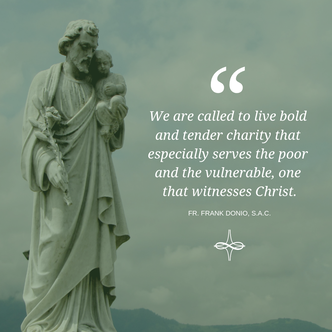 March 19th marks the Solemnity of St. Joseph, Spouse of the Blessed Virgin Mary and Patron of the Universal Church. These are rather lofty titles. He has many others. I first came to know St. Joseph, not only through the Nativity story, but because he was the patron of my parish church in Hammonton, New Jersey. As a child, I would look at the statue of St. Joseph to the right of the main altar and saw a wise looking, older person holding the child Jesus. His face was kind and tender, yet strong. Only later did I admire the work of the artist who was able to capture the essence of St. Joseph. Pope Francis, whose sixth anniversary of the inauguration of his ministry as pope is also on March 19th, reflected on these and other aspects of St. Joseph and what they mean for us: “In the Gospels, Saint Joseph appears as a strong and courageous man, a working man, yet in his heart we see great tenderness, which is not the virtue of the weak but rather a sign of strength of spirit and a capacity for concern, for compassion, for genuine openness to others, for love. We must not be afraid of goodness, of tenderness!” (Pope Francis, Homily, March 19, 2013) Charity or love, St. Thomas Aquinas tells us is “to will the good of the other.” (CCC, 1766). Goodness is not simply about being polite. It is much more than that. It is an opportunity to live love of neighbor in a way that is strong and bold at times. It is a way of showing love of God. Consider what St. Joseph did for Mary in taking her into his home (Mt. 1:24) or in moving the family to Egypt at a moment’s notice (Mt. 2:14). These were in response to God’s invitation to do so – an invitation that came in dreams. We are called to live bold and tender charity that especially serves the poor and the vulnerable, one that witnesses Christ. This is at the heart of the Lenten practice of almsgiving. It is this type of charity that “urges us on” as St. Paul tell us (2 Cor. 5:14). Pope Francis witnesses it, St. Vincent Pallotti lived it, and we are all called to do the same. May the Charity of Christ urge us on! Besides receiving and visiting Our Lord in the Blessed Sacrament at Mass and Adoration, I find that the most nourishing aspect of my spiritual life is friendship with the saints. The Church holds celebrating the saints and asking for their intercession in high regard, as the Solemnity of All Saints, which falls on November 1st each year, is a holy day of obligation. The Vigil of All Saints, then, falls on October 31st each year. One goal of the Christian is to engage in prayer with God, and prayer, simply put, is conversing with God. Each day, we can offer our work to God and talk to Him frequently. This is not always easy, though, and I have found that friendship with the saints helps immensely. A friendship, which is the mutual willing of the good between people, is cultivated with communication and time spent together. Aristotle and Shakespeare, in their genius commentaries on friendship, always return to the simplicity of authentic friendship. Developing a friendship with the saints does not need to be overly-complex. It can also be founded upon communication and time spent together, ultimately bringing us closer to God and strengthening our communication with Him. Communicating daily with the saints further orients our minds to the supernatural, to the existence of the “things…invisible” that we recite in the Creed, and it also strengthens us in the fight for our souls. By communicating with the saints, we will become more like the saints, who in their devotion to Christ became like Christ. Thus, the saints will help us to become more Christ-like. The poet Gerard Manley Hopkins gets at this point in one of his poems: I say móre: the just man justices; Keeps grace: thát keeps all his goings graces; Acts in God's eye what in God's eye he is -- Chríst — for Christ plays in ten thousand places, Lovely in limbs, and lovely in eyes not his To the Father through the features of men's faces. The “just man” is the saint, and the saint’s Christ-like actions help him to become like Christ. As I mentioned in my last blog, stories of the saints are dramas of the highest caliber. Each saint had a unique personality and found their way to heaven in their own special, grace-filled way. There are so many saints that everyone can find someone they relate to or want to emulate. Below, I have listed just a few of my friends, and I pray that they will intercede for you! Sts. Peter and Paul, St. Edmund Campion, St. Ignatius, St. John the Beloved Disciple, St. Luke, St. Catherine of Sienna, St. John Paul II, Bl. Pier Giorgio Frassati, Bl. John Henry Newman, Sts. Thomas More and John Fisher, St. Robert Southwell, St. Henry Walpole, St. Aloysius Gonzaga, St. Robert Bellarmine, St. John Berchmans, St. Francis Xavier, St. Leo the Great, St. Augustine, St. Vincent Pallotti, St. Thomas Aquinas, St. Therese of Lisieux, St. Teresa of Avila, St. Josemaria Escriva, St. John Vianney, St. Joseph, Guardian Angels, Our Lady… Ora pro nobis! Miraculously, the end of the school year has arrived. Certainly there’s been many a trial and challenge to endure and power-through, especially as dreaded final exams approached, but the close of a semester affords a unique phenomenon in the spiritual lives of students, beginning with attendance. The regulars, for example, at the late-night on-campus Mass will often be joined by those either taking a break from or just beginning their academic cramming. Of course, new faces are always welcome and, as the presiding on-campus priests would point out, are a particularly beautiful expression of faith. Recognizing the limits of our gifts and talents, let us petition the One Who perfectly graced each of us individually with these gifts in order to properly apply them towards our endeavors! Rather than only calling upon God when we want His help, our prayers can be made in faith and hope and, no matter the results, comprise of praise and thanksgiving for all God has done for us. However, we cannot pray as if demanding results while doing no work on our own part. In theological terms, grace cooperates with nature. In other words, we do not live as Christians by sheer grace nor by nature unassisted, but in a mysterious way grace— the supernatural gift of God— works unseen and often unknown in our lives. This requires that we prepare ourselves to receive and be moved by grace and that we make sure to then act in such a way as to not squander such a gift. Something that’s been helpful for me during difficulty or surmounting work is turning to the saints. In such times lies the opportunity for fostering a new devotion, especially to a saint who has faced similar challenges during his or her life. While I would continue to pray for the intercession of St. Joseph Cupertino, patron of students, and St. Thomas Aquinas, patron of the University, shortly before finals week, I was especially blessed this academic year to be able to visit the St. Jude Shrine in Baltimore, the Pallottine-conducted nationwide center of St. Jude devotions, to petition the patron of desperate and hopeless cases. After a welcome, lunch, and tour those I was on pilgrimage with and I had the opportunity for private prayer. I was extremely grateful for the opportunity and humbly added my intentions to the baskets full of written prayers that had arrived from devotees across the country. I immediately remembered what was shared with us earlier that day: though the Pallottines could have abandoned the site and moved into a suburban neighborhood, they recognized the need for and pledged to remain and continue to minister from this place of refuge and solace in the inner city. The sheer volume of prayer petitions I saw showed me how important their decision to remain was. I was in awe to see the amount of faith people had to send in all those intentions each day to the shrine and recognized that many of them were actually in dire situations that were being placed at the feet of St. Jude. As I got up to leave, I recalled the words of the “Memorare” prayer and perpetual promise of maternal love of the Blessed Mother. How surely, I reminded myself, would the Mother of God continue to intercede for me and grant me the strength to endure the closing of the academic year with open arms! Whenever we are weak, our Mother at once flies to our aid when we faithfully call upon her name! Whenever you find yourself in a difficult or busy time, I invite you to call upon the help of the saints or ask for Mary’s intercession by praying the Memorare below: Remember, O most gracious Virgin Mary, that never was it known that anyone who fled to thy protection, implored thy help, or sought thine intercession was left unaided. Inspired by this confidence, I fly unto thee, O Virgin of virgins, my mother; to thee do I come, before thee I stand, sinful and sorrowful. O Mother of the Word Incarnate, despise not my petitions, but in thy mercy hear and answer me. Amen. Children have a way of shedding light on a question or topic we hadn’t thought of or paid much attention to. Suddenly, a topic they might casually bring up becomes extremely important and sends us into a research frenzy in search of the correct answer. A few weeks ago, a coworker shared stories about her young children with me, some of which included teaching them lessons about God. Her son asked why we pray for others if God knows the outcome. While discussing prayer and God’s omniscience with my coworker, I dug deep down in my memory to recall catechism lessons from Catholic grade school. I shared some answers with my coworker, but felt the need to consult my parish priest for further insight. Ultimately, I understood that prayer deepens our relationship with God. My parish priest proposed the alternative: “If we never needed to pray, we would never think of God. We would forget him and our relationship with him would atrophy, if not entirely disappear.” Jesus tells us to pray as he prayed. James 4:3 says, “You ask but do not receive, because you ask wrongly, to spend it on your passions.” And in somewhat of a response, John 16:24 says, “Until now you have not asked anything in my name; ask and you will receive, so that your joy may be complete.” As we pray, our desires can become purified. Perhaps we begin praying for “x” outcome, and as we pray, we come to realize “x” is not the best option and instead we are called to “y”. Prayer serves to change us. While God is omniscient, omnipotent, and omnipresent, he has also provided us with free will. We must pray and discern which choices lead us to follow God’s plan. As St. Thomas Aquinas says in his work Summa Theologica, “We pray, not that we may change the Divine disposition, but that we may impetrate that which God has disposed to be fulfilled by our prayers...” (Pg. 3492) Praying for others is a way of loving them. Prayer for others allows us to grow in compassion and keeps us from focusing on selfish concerns. The Catechism of the Catholic Church states that even since Abraham’s time, people have interceded (asking on behalf of another) in prayer for one another. It is a “characteristic of the heart attuned to God’s mercy.” (CCC 2635) Intercession for our fellow man is an act of selflessness, even to the point of praying for our enemies. “The intercession of Christians recognizes no boundaries, ‘for all men, for kings and all who are in high positions,’ for persecutors, for the salvation of those who reject the Gospel.” (CCC 2636) Sometimes we can be God’s instrument by providing comfort or assistance to a community member in need when we learn of or are asked to pray for someone. We can become God’s answer to a prayer. While we do not know why God may grant one prayer and not another, it’s important to know God loves us and desires what is best for us. And being in a close relationship with God is best for us. As my parish priest said: “the ‘stuff’ God grants is secondary.” For more resources on prayer, please visit the Catholic Apostolate Center Prayer and Catechesis Resource page. To celebrate the Catholic Apostolate Center passing 50,000 "likes" on Facebook, Communications and Social Media Intern Andrew Buonopane created a list of 50 Ways to Enjoy your Faith. This is the fourth post in a five-part series where we'll share the whole list. Check back on the first Tuesday of the month for another installment! #20- Celebrate the Easter Octave Did you know that as Catholics, we celebrate both the “season” of Easter (which lasts 50 days) as well as especially celebrating the Octave of Easter which concludes this Sunday on Divine Mercy Sunday. #19- Devotion to Our Lady of Sorrows During Holy Week, we truly saw our Blessed Mother in her role as Our Lady of Sorrows. We experienced with her Christ’s death. How do you think she felt watching her son suffer so greatly? #18- Consider Parish Ministry Getting more involved in your parish is a great way to enjoy your faith! See if there are needs your parish has that you might be able to fill! #17- Adoration Eucharistic Adoration is a way to experience Christ in the Eucharist outside of the Mass. See if your parish has Adoration and if you’ve never gone before…try it! #16- Understand the Liturgy Sometimes we can get into the habit of “going through the motions” at Mass. Next Sunday, pay special attention to the rituals and prayers of the Mass. Ask yourself why we say and do everything at Mass. Take some time to learn more about the liturgy! #15- Devotion to Guardian Angel “Angel of God, My Guardian Dear…” is a prayer you may have been taught as a child. But did you know there’s a lot more to Guardian Angels? Check out this blog post which talks more about them! #14- Practice Forgiveness Turning the other cheek isn’t easy to do sometimes. But practicing forgiveness is an important part of our faith lives. #13- Devotion to Thomas Aquinas St. Thomas Aquinas was one of the Church’s earliest scholars. Much of his work is still taught today in theology and philosophy classes. Have you ever read his arguments on the existence of God? If not, take some time to check it out! #12- Devotion to Teresa of Avila St. Teresa of Avila is a great saint to model in your daily life. Take a moment to learn more about her! #11- The Paschal Mystery: Last Supper to Resurrection The Paschal Mystery is what we just celebrated last week in the Triduum. We recall Christ’s death and Resurrection and the liturgies celebrated at the Triduum take us on this journey.
To read the previous installment in this series, click here: Part I | Part II | Part III Andrew Buonopane is the Communications and Social Media Intern at the Catholic Apostolate Center “God is offering us grace, let us be man enough to accept it!”
- Monsignor Vito Buonanno I heard this a couple weeks ago at a Knights of Columbus meeting and it has stuck with me ever since. Not only are these words empowering and driving us to seek God, but they also perfectly describe our Lenten journey. We are imperfect, we are lacking, we are human, but God still loves us. He is offering us the grace to seek Him, to journey toward him, to be with Him, let us accept this grace, take His hand, and walk with God! This is easier said than done. Last week we celebrated Ash Wednesday and many of us made Lenten promises to abstain from sweets, help out a neighbor, or pray a little bit more. And at the beginning of the Lenten season, many of us are most likely already struggling with our Lenten promise. But we cannot focus on those failures, rather we must focus on how to stand back up and continue walking toward Christ. We need to focus on converting ourselves to Christ. In his Ash Wednesday homily in 2014, Pope Francis said, “Once again Lent comes to make its prophetic appeal, to remind us that it is possible to create something new within ourselves and around us, simply because God is faithful, always faithful, for he cannot deny himself, he continues to be rich in goodness and mercy, and he is always ready to forgive and start afresh.” We have heard similar themes before in Baptism. In Baptism, we talk about beginning anew and starting afresh as we enter into the water, die with Christ, and are reborn in him. Our Lenten journey is a reminder of our Baptismal call to live out the Gospel and in doing so we convert others and ourselves to Christ. The Lenten journey is different for each and every one of us for we all convert ourselves to Christ in different ways. And yet at the center of every conversion has to be prayer. It is only through prayer that we can come to understand all that God is asking of us. It is only through a dialogue with Him that we can form ourselves in His image. It is only through prayer that we are able to examine ourselves, reconcile with Christ, and move forward walking with hope toward the light of salvation. Prayer is not always easy. Oftentimes I sit down to pray and am bombarded with thoughts about everything that I need to do that day, the things in my life that are worrying me, and the distracting sounds around me. Some people would say to find God in those distractions, to let Him speak to you through them, but that does not always work for me. When I am struggling to pray I turn to formed prayer, to writings of Archbishop Fulton Sheen, Pope Francis, or St. Thomas Aquinas. When I am struggling to pray I turn to Our Blessed Mother and pray the rosary. These things ground me in my faith and when I am finished I am ready to listen. This Lenten season lets us open our hearts to Christ so that He may guide us on this journey to Him. Jesus wants to love us, we just have to say yes! Nicholas Shields is a Young Professional in Washington, D.C. To learn more about Lenten prayer please check out our Lenten Resources! “Saint Thomas Aquinas, pray for us.” This simple invocation was the conclusion to my family’s Morning Prayer ritual. Every morning, for as long as I can remember, my family would pray together an Our Father, Hail Mary, Glory Be, and the St. Michael’s Prayer. We would conclude with the invocations of Saint Anthony (for a safe trip to school) and Saint Thomas Aquinas (for help with our studies). Today the day before the feast day of Saint Thomas, patron saint of students, and during Catholic Schools Week; I wanted to share my experience of education.
I attended public schools from first grade until I graduated from high school. I was not the only religious student in my grade (or even the only Catholic) but nonetheless I was labeled as the “token Catholic.” This label was at times a point of pride for me and at others a burden I wish I could evade. While it never hindered me from making friends, it still set me apart. I would take up defense of the Church’s often unpopular stance on social issues in class discussions. In some rare cases I even found that my thoughts on certain subjects were brushed off as being my opinion only because of my faith, and any evidence I supplied in support of that stance was ignored. While I received a well-rounded education, the school community was so concerned with being tolerant of all things that it became intolerant of ideas it perceived as being intolerant. After high school, I attended a Catholic college. This was my first real experience of having faith integrated into my formal education. There were numerous differences, but perhaps the most notable was the community. In every classroom, there were Catholic students whose beliefs varied widely, as well as students of other faiths or no faith at all. Regardless of who you were or what you believed, you were expected to support your opinion with reason. It was this environment that fostered a community of intellectual discussion and debate (which rarely turned into conflict). Every idea was heard, which allowed me to hone my own beliefs while also growing in faith. This community was truly welcoming and challenging to all—even when that meant a difference of opinions. Education should be a constant exchange of ideas. This exchange is not always smooth and simple, and that can in fact be a good thing. Saint Thomas’s two greatest works, Summa Theologica and Summa Contra Gentiles, incorporate the work of the Greek philosopher Aristotle (which, at the time that Saint Thomas lived and wrote, was just shy of heresy). He also conversed with philosophers of other faiths, most notably Islam. Despite this pushing of boundaries—or perhaps because of them—Saint Thomas is recognized today as one of the founders of modern philosophy. In his writings he addresses arguments and opposition to his theories head-on regardless of whom they came from. This boldness in spirit is what made him both an incredible student and teacher. It is also why, over eight hundred years later students—myself certainly included—ask for his intercession with their studies. As Catholics, it is our duty to build up communities where we can encounter both those who share our faith and those who do not. We can see this lived out in the challenging and formative words of our Holy Father. May we always seek to be students and teachers of the faith. Saint Thomas Aquinas, pray for us. Patrick Burke is a staff member at The Catholic University of America in Washington, D.C. In his final words as Supreme Pontiff, Benedict XVI reminded us from the balcony of Castel Gandolfo that he was “simply a pilgrim beginning the last leg of his pilgrimage on Earth.” In doing so, he reminded us, the faithful, that we too are on an earthly pilgrimage. Benedict’s goal, as well as ours, is the Kingdom of Heaven. As pilgrims, we travel around and seek the ways that will lead us to our destination. Though at times we go down the wrong path, we trust that, having faith in God, He will always bring us back to our goal, to be with Him. Thus, we are truly a “Pilgrim Church,” a community of believers on a voyage to Christ.
This past Sunday, we celebrated the great solemnity of The Most Holy Body and Blood of Christ, also known as Corpus Christi. The history of the feast goes back all the way to the early 1200s in modern day Belgium. St. Juliana of Liege, a Norbertine canoness, had a vision of a full moon with a dark spot. The spot, she believed, represented the absence of a feast dedicated to the Blessed Sacrament outside the season of Lent. After reporting her visions to her confessor and bishop, the bishop instituted such a feast in the diocese in 1247. Several years later, Pope Urban IV extended the celebration to the universal church in 1261. It was he who requested St. Thomas Aquinas to write hymns for the feast day. We know them today as the Pange Lingua and Panis Angelicus. Urban successors, most especially Clement V in 1311, reinforced the original decree and promoted the observance of the feast. One of the most beautiful and traditional aspects of the celebration is the procession of the congregation behind the Eucharist encased in a monstrance. On a personal note, this day has always been one of my favorites growing up. I loved walking with my family and friends around the church building (often stopping traffic!), all following our pastor holding the monstrance up as high as he could. In many ways, the Corpus Christi procession mirrors our pilgrimage (our procession) on earth. Together, with other members of the faithful, we are led toward God, whose real presence on earth is in the Eucharist. The Most Blessed Sacrament is the point in which heaven and earth meet. Not only is it our guide on earth, but also our guide to heaven. Processing around, following the Eucharist is a reminder that what we do on earth can lead us to an everlasting reward. By receiving the Eucharist, we are given the strength (both spiritual and physical) to continue on our earthly journey. As St. Thomas Aquinas once wrote, “Per tuas semitas duc nos quo tendimus, ad lucem quam inhabitas” (By your ways lead us to where we are going, to the light where you live.) Victor David is a recent graduate of The Catholic University of America in Washington, D.C. In the recent “Faithful Citizenship” lecture on the foundations of Catholic political theory, Dr. Stephen Schneck (CUA politics professor and Director of the Institute for Policy Research & Catholic Studies) presented Thomism as an alternative to the radical positions held by groups at opposing ends of the ideological spectrum. While the two extremes disagree about particulars, according to Schneck, both “Ayn Rand conservatives” and “pro-choice liberals” are motivated by a “hyper-individualism,” which is in direct contradiction to the social teaching of the Church. If we are to believe Dr. Schneck’s premise, it seems that faithful Christians are left between a rock and a hard place in the current political landscape. Thankfully, the political philosophy of St. Thomas Aquinas offers Christians an authentic alternative.
Synthesizing ecclesiology and political philosophy, St. Thomas understood the nature of a political community as being deeply Christological. Drawing from St. Paul’s imagery, St. Thomas perceived the political community as a reflection of the Mystical Body of Christ: “For as in one body we have many parts, and all the parts do not have the same function, so we, though many, are one body in Christ and individually parts of one another” (Romans 12:3-5). This image of a political community as a corporate whole is in stark contrast to the Lockean image of a group of individuals that is held together solely by an externally imposed contract, rather than internal unity. The Thomistic political community is held together by solidarity among its members, a unitive desire for the wellbeing of the whole, rather than individual self-interest. In Thomistic philosophy, the object of this desire is referred to as the commonweal, or the common good. But why place more importance on the common good than individual goods? Because, as Aristotle said and St. Thomas affirmed, we are political and social beings; the meaning of our lives transcends beyond who we are as individuals. As John Donne observed in his oft-cited Meditation XVII, “No man is an island, entire of itself; every man is a piece of the continent, a part of the main.” After Dr. Schneck had concluded his lecture, a question-and-answer session followed. A young woman from the back of the lecture hall politely asked, “What can we do as individuals to combat the pervasiveness of hyper-individualism in our society?” Ironically, this question demonstrates what is at the root of the problem of hyper-individualism: we cannot cease thinking of ourselves primarily as individuals! This shift in thinking does not mean that we must give up our own individual rights; to the contrary, our solidarity with one another should engender a greater appreciation for the individual rights of a group’s collective members. In fact, it is our individual freedoms that allow us to choose how we prioritize our actions and intentions. Through our individual liberties, we are given the opportunity to look and act beyond ourselves. During this Easter Season, may we all be reminded that through our baptism and as members of Christ’s Body, we have truly been raised with Him! (cf. Ephesians 2:6) In order to more fully participate in God’s divine economy – i.e. His comprehensive plan for Creation – may we “not think of [ourselves] more highly than [we] ought to think” (Romans 12:3), but instead humbly unite ourselves to our fellow members in the One Body of Christ. Brett Garland is the Program Development Coordinator for the Catholic Apostolate Center. |
Details
Archives
July 2024
Categories
All
|
About |
Media |
© COPYRIGHT 2024 | ALL RIGHTS RESERVED

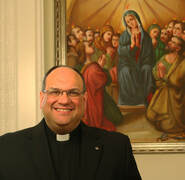
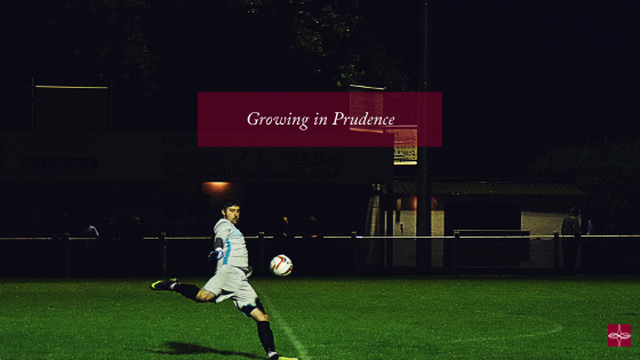
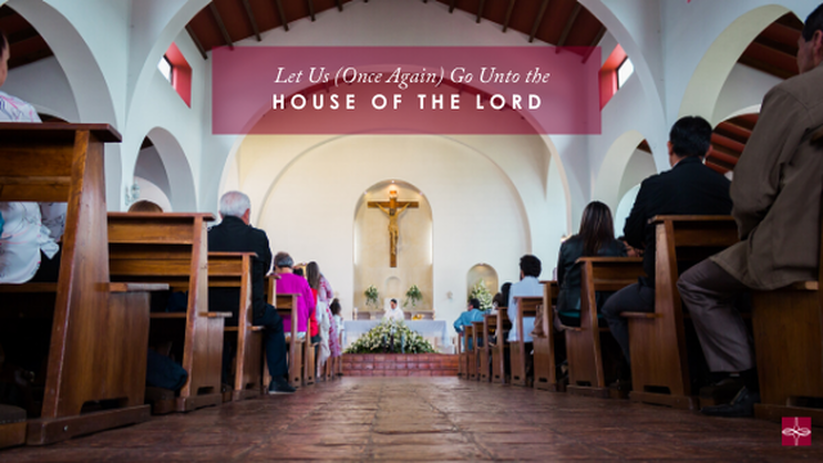

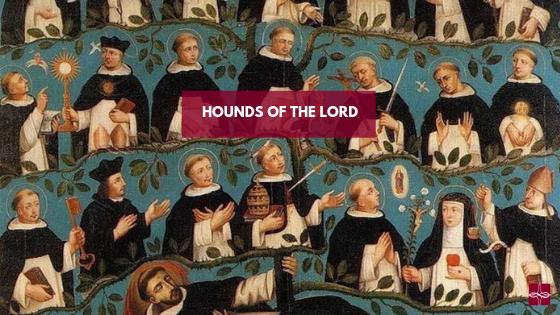

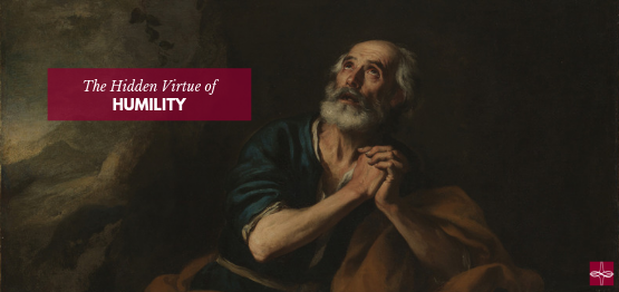

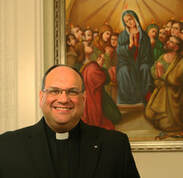
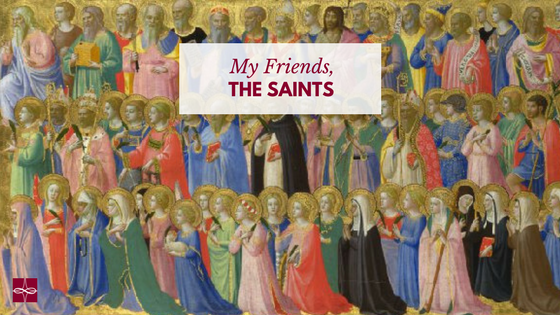

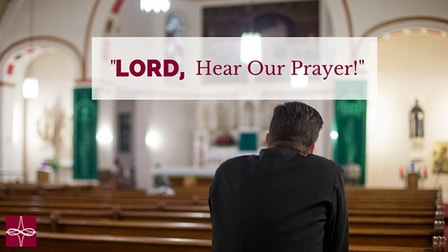

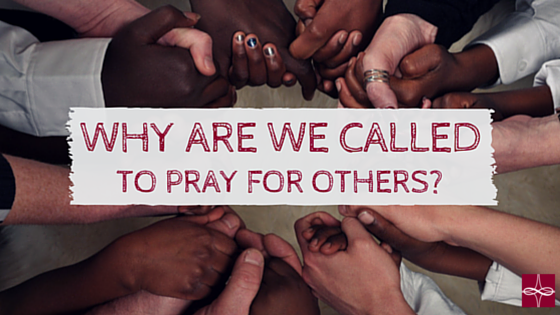

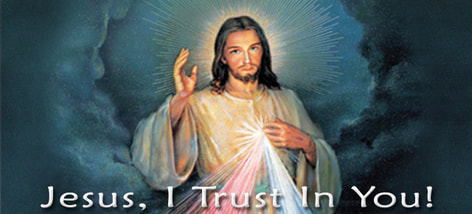
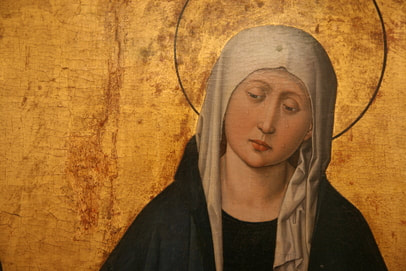

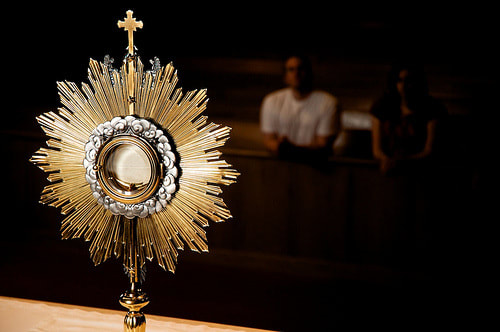



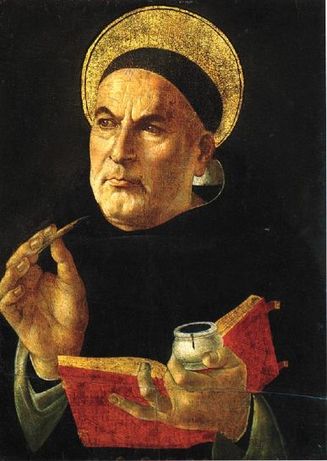

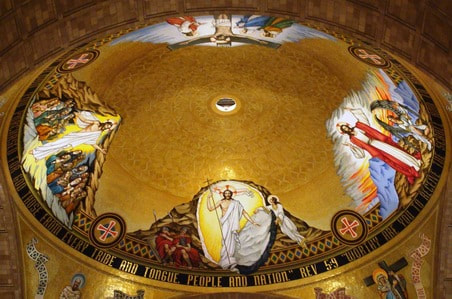

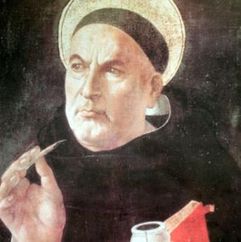
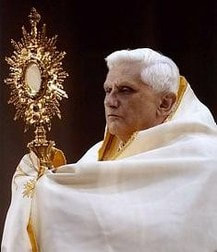
 RSS Feed
RSS Feed